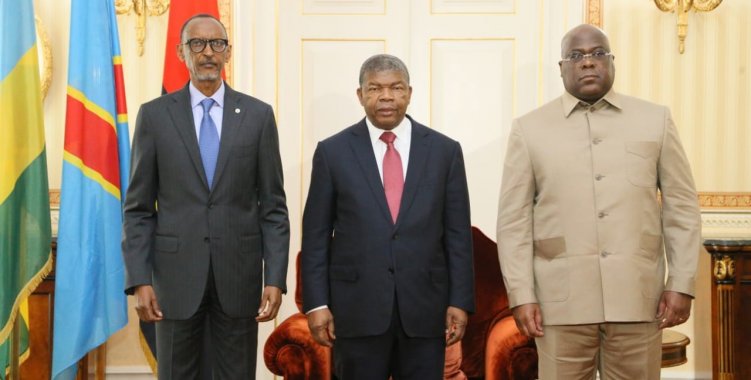According to the Congolese presidency, the president of the Democratic Republic of Congo (RDCongo), Félix Tshisekedi, was meeting with his Angolan counterpart, João Lourenço, in private before extending the meeting to the respective delegations.
The president of Rwanda, Paul Kagame, was also expected to attend Sunday's summit, but he did not attend.
The Congolese presidency refers in its social network page X (formerly Twitter) that the annulment of the summit was due to the refusal of the Rwandan delegation to participate in the meeting aimed at ending hostilities in eastern DRCongo "by withdrawing Rwandan troops from Congolese areas".
On Saturday, as part of the mediation process on the security and peace situation in eastern DR Congo, a ministerial meeting between Rwanda and DR Congo was held in Luanda with a focus on the mediation proposal, related to Disarmament and Cantonment of M23, a group considered terrorist by DR Congo that accuses Kigali of supporting this armed group.
The delegations were headed by the foreign ministers of the respective countries, but the Angolan side, which has served as a mediator in this process, did not disclose the result of the meeting.
The Congolese presidency says that "Rwanda conditioned the signing of the agreement" on direct dialogue between the DRCongo and the M23, an offer rejected by the Congolese side.
Last month, DRCongo and Rwanda had reached an agreement on a plan to dismantle the rebel group Democratic Forces for the Liberation of Rwanda (FDLR).
This is a fundamental step on the path to peace in eastern DRCongo, where dozens of rebel groups operate, as the end of the FDLR is a demand of the Rwandan Government, which collaborates with the March 23 Movement (M23), which is in conflict with the regular Congolese army.
Although Rwandan authorities deny Kigali's alleged collaboration with the M23, this fact has been confirmed by the UN.
In a report released in July, researchers from the United Nations Security Council stated that there were 3000 to 4000 Rwandan soldiers fighting alongside M23 rebels against the Congolese army in eastern DRCongo.
According to investigators, the Rwandan army took over "in fact, the control and direction of M23 operations" and its military intervention "was decisive for the significant territorial expansion achieved between January and March 2024".
In turn, Rwanda and M23 accuse the Congolese army of cooperating with the FDLR rebels, founded in 2000 by leaders of the 1994 genocide and other Rwandans (Hutus) exiled in DRCongo to regain political power in their country, a collaboration also confirmed by the UN.
On July 30, the delegations of DRCongo and Rwanda signed in Luanda a ceasefire agreement between the Armed Forces of DRCongo (FARDC) and the M23, which came into force in the early hours of August 4 and was violated on several occasions.
M23's armed activity was reactivated in 2022 after years of relative calm, and since then the group has advanced on several fronts to position itself near the city of Goma, on the shores of Lake Kivu, which it occupied for ten days in 2012.
Since 1998, eastern DRCongo has been mired in conflict fueled by rebel militias and the army, despite the presence of the UN peacekeeping mission in the country.







